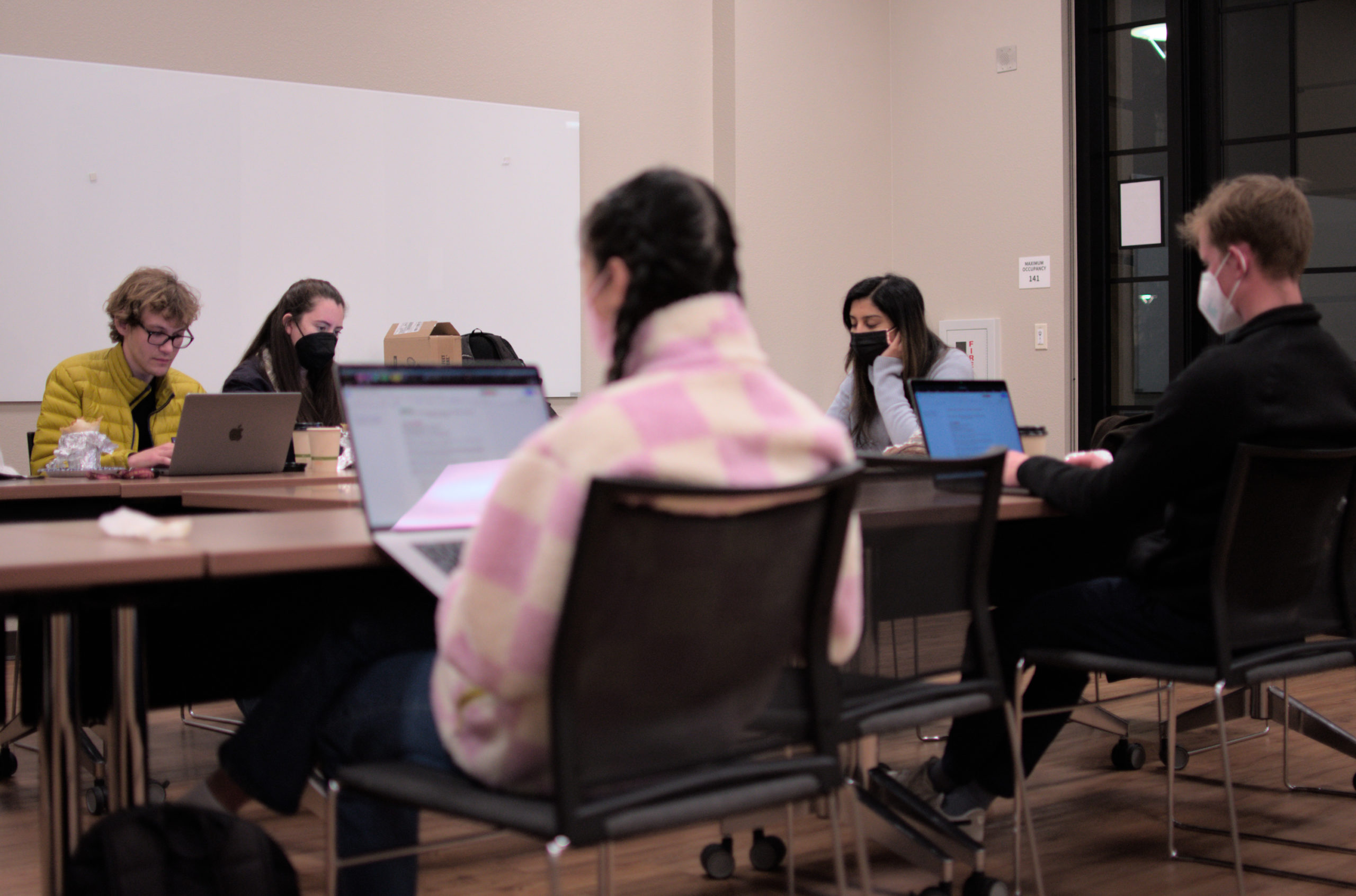The Graduate Student Council (GSC) considered plans to encourage more student engagement at events during its Wednesday meeting.
The graduate community has struggled with varying levels of engagement, from voter participation rates to event attendance.
Councilors met with three representatives from the Graduate Life Office (GLO), who shared feedback on how to best plan for and sponsor future events with the Graduate Student Programming Board (GSPB) — a department of the GLO focused on social planning.
“We have grad students who want to do things for more graduate students,” Assistant Dean of Students and Associate Director of GLO Christine Gibo said. “So we’re definitely trying to utilize that enthusiasm to make lots of things happen.”
Despite student enthusiasm, Gibo noted a lack of attendance at recent events, citing a talk on imposter syndrome that garnered only three attendees. “People are pretty tired of getting email newsletters, and it’s kind of getting washed away,” she said.
Councilor Jarita Greyeyes, a fourth-year Ph.D student in education, also spoke to GLO representatives about inviting off-campus graduate students to future events.
“There are students who live in other Bay Area communities and want to organize events,” Greyeyes said. “Is there support for them to sort of take the lead on those?”
Gibo said that the GSPB, which operates on a budget of approximately $20,000, is considering GSC’s recommendation to set aside a certain percentage of attendance for off-campus graduate students. This move, along with a push for more decentralized events off-campus, could encourage increased levels of graduate student engagement.
Though GLO is funded by the University, the GSC recently provided GLO with a grant for a boba event that gathered a large graduate student crowd. According to social chair Chloe Glikbarg ’21 M.S. ’22, this grant may be the start of increased collaboration between the GSC and GLO moving forward.
“We have a lot of financial resources, and neither [councilor Jason Anderson] nor I have the time to plan a ton of events because we’re just limited in our capacity,” Glikbarg said. “It sounds like GLO has a lot of interest from the GSPB and others who want to plan events, but they have a pretty tight budget.”
Councilors also reviewed a bill that asks the University to “reaffirm its commitment” to a range of different responsibilities regarding sexual assault, harassment and misconduct. The bill, which was unanimously passed by the Undergraduate Senate in its Feb. 10 meeting, was authored by Lexi Kupor ’25, who writes for The Daily’s news section. Councilor Tim Vrakas ’21 M.S. ’22 said that the bill was “surprisingly concrete,” given that past resolutions on the topic have not called for as many tangible changes.
Because no representatives of the bill were present at the meeting, councilors read through the bill’s contents and currently plan to vote on the resolution at the GSC’s March 2 meeting. If two-thirds of the GSC approves the bill, the Faculty Senate must add the resolution to its agenda and discuss its contents.
